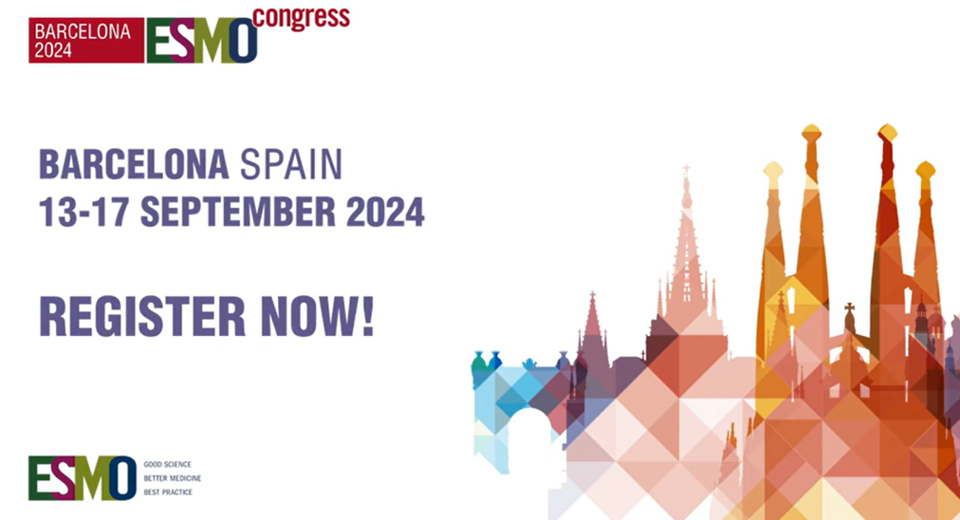Major companies including Yuhan, HLB, and Lunit to showcase advancements in cancer therapies.

Korean pharmaceutical and biotech companies will reveal clinical data from their drug pipelines at the 2024 European Society for Medical Oncology (ESMO 2024), scheduled for September 13-17 in Barcelona, Spain.
Established in 1975, ESMO is a global academic organization with more than 30,000 members, including oncology specialists, researchers, and industry representatives from about 170 countries. The society plays a key role in advancing cancer research and treatment.
Companies such as Yuhan Corporation, HLB, Gradient Bioconvergence, NeoImmuneTech, Tium Bio, and Lunit are set to present clinical data and research abstracts at this year’s conference.
Yuhan Corporation, which recently received FDA approval on August 20 for a combination therapy involving its lung cancer treatment Leclaza (lazertinib, U.S. name: Rybrevant) and Amivantamab, will be a prominent participant. The company will present second interim overall survival data from the MARIPOSA-2 study, comparing amivantamab plus chemotherapy against chemotherapy alone in patients with advanced non-small cell lung cancer (NSCLC) who have progressed after osimertinib treatment and exhibit an EGFR mutation. Yuhan will also present research analyzing resistance mechanisms following osimertinib treatment, focusing on mutations such as MET amplification and EGFR C797S.
HLB's U.S. subsidiary, Elevar Therapeutics, will present results from a subgroup analysis that highlights the efficacy of rivoceranib in liver cancer patients, with improved quality of life outcomes compared to the control group. Additional findings include safety data and the generation of anti-drug antibodies (ADA) from its global Phase 3 study, evaluating the combination therapy of rivoceranib and nivolumab, Bristol Myers Squibb’s immune checkpoint inhibitor.
Gradient Bioconvergence will operate a booth to showcase their patient-derived organoid (PDO) banking system, with around 800 cancer patient-derived organoids, and introduce their AI-powered biomarker discovery technology. The company will also engage with domestic and international partners to discuss commercialization opportunities.
NeoImmuneTech will present interim results from a Phase 1b study (NIT-112) combining CAR-T therapies with their immunotherapy NT-I7 (efineptakin alfa), while Tium Bio will share additional results from its Phase 1b trial combining TU2218 with Keytruda, including safety data and anti-cancer responses in patients with advanced solid tumors.
AI-powered medical research will also have a strong presence at ESMO. Lunit will present data on the effectiveness of its AI biomarker 'Lunit Scope IO' in combination immunotherapy for advanced gastric cancer patients. Their findings show an improvement in median progression-free survival (8.2 months vs. 5.9 months) in the combination therapy group compared to the monotherapy group.
Global Expansion and Strategic Partnerships on the Horizon
Industry experts see ESMO as a valuable opportunity for Korean pharma and biotech firms to enhance global partnerships. According to an industry insider, "ESMO showcases cutting-edge research in cancer treatment, allowing South Korean companies to gain insights into new therapeutic paradigms and technological trends."
The insider added that these firms could explore partnerships with global pharmaceutical companies for joint research and development, which could serve as a foundation for expanding into international markets. Participation in such conferences helps identify areas for improvement and develop strategies for commercializing competitive new drugs.
관련기사
- 'ESMO 총출동' K제약바이오… 주요 임상 데이터 공개
- 누군가 오픈 이노베이션을 묻거든, 고개를 들어 '렉라자'를 보자
- 30년 염원 푼 '렉라자', 약가에 들어온 '혁신', 살아나는 '투심'
- Great & Global 이뤘다, 유한 렉라자 국산 항암제 첫 미국 허가
- HLB "간암치료제 '리보세라닙' 병용, 유럽서 희귀약 지정"
- 그래디언트, PDO 기반 신약 타깃 발굴 플랫폼으로 글로벌 공략
- 티움바이오, '자궁내막증 치료제' 유럽 2a상 최종 결과 수령
- ESMO 2024: Enhertu Shows PFS Benefits in HER2+ Breast Cancer
- Samsung Medical Center’s Professor Ahn Wins ESMO Oncology Award

